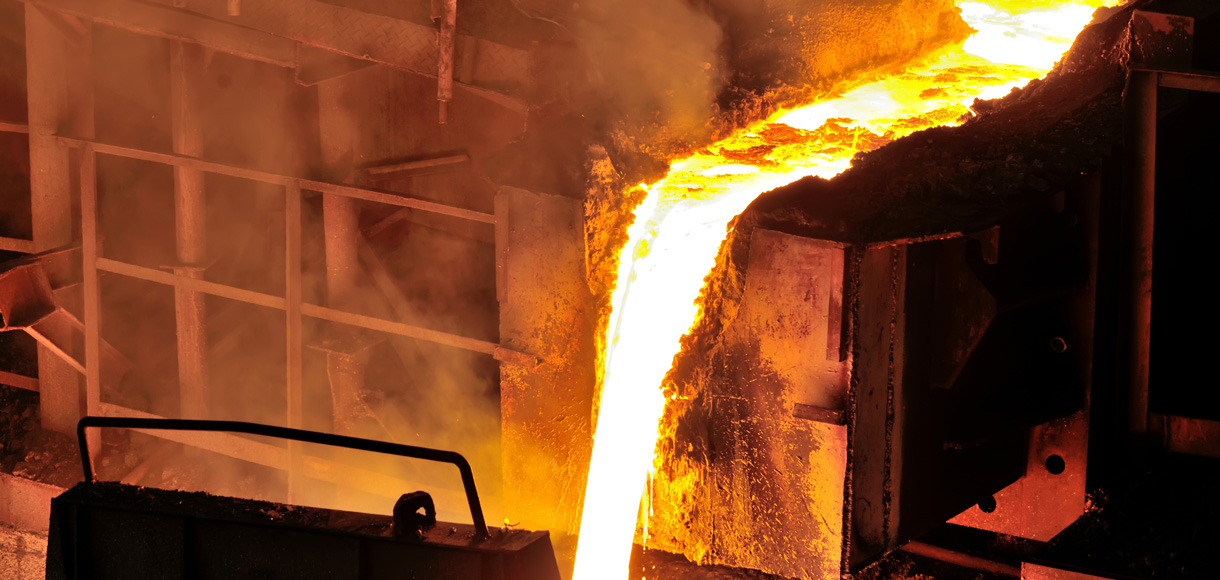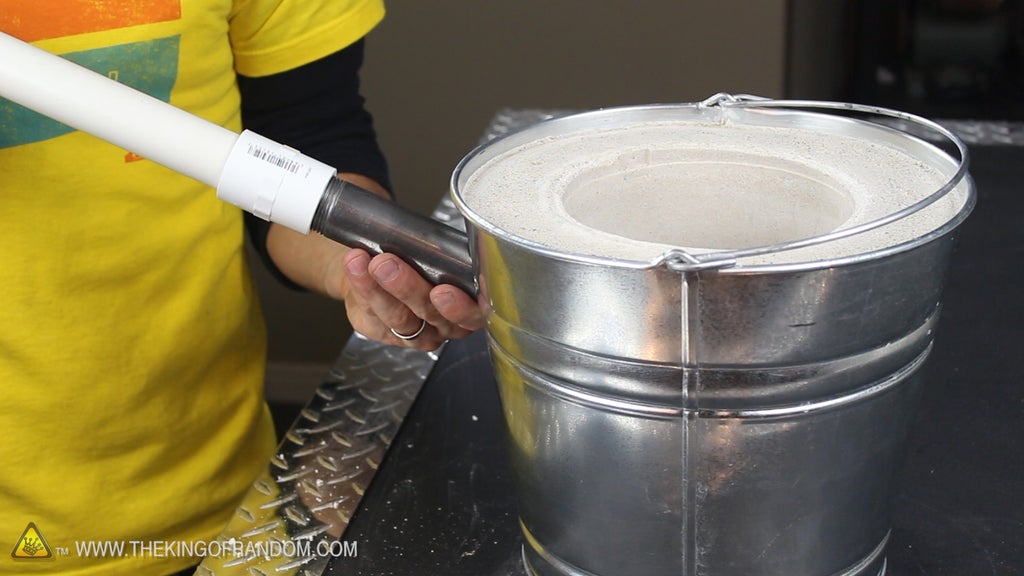10 things you didn’t know about the modern Aluminum Foundry sector
A Deep Study Metal Foundries: Secret Providers and Their Influence On Manufacturing
Metal factories are integral to modern production, using crucial solutions that shape the manufacturing landscape. They specialize in different casting procedures, making certain precision and quality in steel elements. The development of technology and sustainable methods has better affected their procedures. As markets significantly depend on these factories, understanding their vital solutions and the implications for manufacturing effectiveness comes to be necessary. What technologies and obstacles exist in advance for this essential field?
Comprehending Metal Casting Processes
Steel spreading processes transform fluid steel into strong objects through different methods, each customized to specific applications and products. Among one of the most usual methods are sand spreading, financial investment spreading, and pass away casting, each offering distinct benefits. Sand spreading makes use of a mold made from sand, allowing the production of huge components at a fairly reduced price. Investment spreading, on the various other hand, involves creating a wax pattern that is coated in ceramic, yielding complex and very comprehensive shapes. Die casting employs high stress to compel molten metal right into a mold, which is suitable for mass production of little, specific elements. These processes permit a large range of steels to be used, consisting of steel, light weight aluminum, and bronze, fitting varied industrial requirements. The selection of a suitable casting strategy depends on variables such as needed resistances, manufacturing volume, and product buildings, influencing the overall efficiency and performance of the end items.
The Importance of Precision Casting
Accuracy spreading plays an important duty in producing elements that require high accuracy and elaborate information. This approach, frequently referred to as investment spreading, permits complex geometries and tight resistances, making it crucial in industries such as aerospace, automobile, and medical tools. By utilizing wax patterns that are coated with a ceramic covering, accuracy spreading makes it possible for the production of get rid of smooth surface areas and marginal finishing needs.

Alloy Growth and Material Selection
In the domain of steel shops, alloy growth and product choice are important factors affecting the efficiency and long life of actors components. The option of alloy directly impacts mechanical buildings, such as ductility, corrosion, and stamina resistance, crucial for meeting details application demands. Shops typically take part in considerable research and testing to maximize alloy structures, tailoring them to the distinct needs of numerous markets, consisting of automotive, aerospace, and building.
Product selection likewise entails examining variables like manufacturability, accessibility, and cost, making sure that the picked alloy aligns with manufacturing capabilities and spending plan restrictions. Advanced simulation tools and analytical approaches are utilized to predict the actions of various alloys under differing problems, supplying useful insights for engineers. Eventually, effective alloy advancement and material selection make it possible for shops to generate top notch parts that improve operational efficiency and reliability in their intended applications.
Cutting-edge Molding Strategies
Reinventing the manufacturing process, innovative molding techniques play a pivotal function in enhancing the performance and high quality of actors parts in steel foundries. Methods such as 3D printing and vacuum cleaner molding have emerged as video game changers, enabling for intricate styles and decreased preparations. These methods allow shops to produce molds with intricate geometries that conventional methods commonly have a hard time to accomplish.
In addition, the use of sophisticated materials for mold and mildews, such as composite materials, improves longevity and lowers wear, causing longer production runs. Fast prototyping more enables quick models, assisting in faster development cycles and allowing suppliers to respond even more promptly to market needs.
Automation in molding procedures streamlines procedures, reducing human mistake and increasing throughput. By incorporating these ingenious strategies, metal factories can maximize their production capacities, ultimately resulting in better spreadings and enhanced general performance in the competitive production landscape.
Quality Assurance in Metal Foundries
Quality control in metal factories is important for guaranteeing the stability and efficiency of cast products. It incorporates numerous evaluation strategies and standards, in addition to flaw discovery techniques to identify potential problems early in the manufacturing process. Moreover, durable quality control procedures are important for maintaining consistency and meeting market demands.
Evaluation Techniques and Specifications
Ensuring the stability of steel castings requires strenuous inspection techniques and adherence to developed criteria. Metal foundries execute various inspection approaches to review the high quality of cast products, consisting of aesthetic assessments, dimensional checks, and non-destructive testing (NDT) These techniques assist to recognize prospective flaws early in the manufacturing procedure. Specifications such as ASTM and ISO supply guidelines for appropriate quality degrees and testing procedures, ensuring that factories maintain regular high quality throughout their manufacturing lines. Conformity with these standards not just enhances item integrity however additionally cultivates trust fund among clients. By prioritizing inspection strategies, metal shops can alleviate dangers associated with defects and warranty that their spreadings satisfy client requirements and industry requirements.
Flaw Detection Approaches
Reliable flaw detection techniques are essential to keeping high requirements in metal factories. These techniques encompass a variety of methods targeted at identifying flaws in castings prior to they are processed Metal Foundry further. Typical methods include aesthetic evaluation, which depends on the qualified eye of inspectors to identify surface problems, and non-destructive screening (NDT) methods such as ultrasonic screening and radiography, which disclose internal flaws without damaging the material. Additionally, automated systems utilizing artificial intelligence and man-made intelligence are progressively utilized to assess information and identify anomalies. Each approach plays an essential role in making certain the integrity of the final product, lessening waste, and enhancing overall production efficiency. By applying robust problem detection processes, factories can promote their reputation for quality.
Quality Control Processes
In steel factories, a thorough quality control procedure is necessary for generating reliable and high-performing spreadings. This process encompasses various stages, including resources examination, in-process surveillance, and last item analysis. By executing standard treatments, shops can methodically recognize and fix defects prior to they intensify into pricey problems. Advanced methods, such as non-destructive testing and metallurgical analysis, are utilized to assess the integrity of castings. In addition, documentation and traceability are essential components, ensuring that each action of manufacturing fulfills rigorous high quality standards. Training employees in quality assurance methods better improves the effectiveness of these processes. Eventually, a durable high quality assurance structure not only improves operational performance yet also enhances customer trust and fulfillment in the shop's output.
The Role of Innovation in Foundry Operations
Technology revolutionizes shop procedures by enhancing safety and security, accuracy, and performance. Automation plays a crucial duty, streamlining procedures such as mold and mildew production and steel putting, thus minimizing labor prices and minimizing human error. Advanced computer-aided design (CAD) software application makes it possible for exact modeling of components, helping with quicker adjustments and versions during manufacturing.
In addition, the assimilation of robotics in jobs like product handling and ending up procedures raises performance and warranties consistent top quality (Metal Casting). Real-time surveillance systems and information analytics provide useful insights into operational efficiency, permitting for timely interventions and maintenance, which eventually lengthens equipment lifespan

The adoption of 3D printing technology even more enables rapid prototyping and customized remedies, considerably minimizing lead times. Additionally, innovative products innovation improves the homes of alloys, improving spreading performance. To summarize, technical improvements are important in optimizing foundry procedures, allowing manufacturers to fulfill the raising needs for quality and efficiency in the competitive steel industry.
Ecological Factors To Consider in Metal Casting
Environmental factors to consider in steel spreading play a significant role fit industry practices. Effective waste monitoring, advanced exhaust control innovations, and the use of lasting materials are crucial for reducing the environmental impact of foundries. Attending to these factors is essential for advertising an extra sustainable future in steel production.

Waste Management Practices
Reliable waste management methods are crucial in the steel casting sector to mitigate environmental effects. Aluminum Casting. Shops create different kinds of waste, including metal sand, chemical, and scrap deposits. Executing recycling programs enables the repurposing of metal scrap, minimizing the requirement for virgin products and reducing landfill payments. Furthermore, foundries usually use sand recovery procedures, which recycle and recoup sand multiple times, thus decreasing waste generation. Correct disposal methods for hazardous materials, such as binding agents and solvents, are essential to avoid dirt and water contamination. Additionally, worker training on waste segregation and reduction techniques can improve total performance and sustainability. Via these techniques, steel shops can noticeably lower their ecological footprint while maintaining manufacturing performance
Discharge Control Technologies
As the steel spreading market evolves, the implementation of innovative exhaust control modern technologies comes to be progressively crucial for reducing harmful toxins launched during production processes. These modern technologies include various methods, consisting of electrostatic precipitators, scrubbers, and catalytic converters, which properly catch and neutralize discharges before they go into the environment. By integrating such systems, factories can substantially decrease particulate matter, volatile natural substances, and other hazardous exhausts. Furthermore, compliance with rigorous environmental guidelines not only reduces ecological impact but additionally enhances the industry's track record and functional efficiency. The adoption of these technologies shows a commitment to lasting practices, making certain that metal spreading procedures can meet the growing need while focusing on ecological health and wellness.
Lasting Products Use
Sustainable products use in metal casting plays an important duty in minimizing the market's environmental impact. Shops are increasingly embracing recycled steels, which significantly minimize the need for virgin resources and reduced power usage during the production procedure. Furthermore, the usage of environmentally friendly binders and ingredients enhances the sustainability of casting operations by reducing harmful discharges and waste. Innovations in material science additionally allow for the growth of naturally degradable alternatives that do not jeopardize product quality. In addition, shops are executing life-cycle analyses to review the ecological impact of products throughout their life expectancy, advertising even more accountable sourcing and usage. Generally, these practices contribute to a more lasting and ecologically mindful metal casting sector, straightening with global efforts to reduce carbon impacts.
Regularly Asked Concerns
What Are the Main Kind of Metal Utilized in Factories?
Factories largely utilize steels such as iron, light weight aluminum, magnesium, and copper. These materials are picked for their distinct residential properties, which influence the casting procedure and the efficiency attributes of the last products manufactured.
How Do Foundries Ensure Employee Safety And Security Throughout Operations?
Foundries guarantee employee safety and security through strenuous training, appropriate equipment, ventilation systems, and adherence to safety guidelines. Routine inspections, individual safety gear, and emergency situation protocols better improve a safe functioning environment for staff members engaged in metal manufacturing.
What Is the Typical Preparation for Casting Manufacturing?
The common preparation for casting production differs, typically ranging from a few weeks to a number of months. Variables influencing this timeline include intricacy of the style, material availability, and the shop's manufacturing capability and scheduling.
Exactly How Do Factories Deal With Waste and Recycling Processes?
Shops manage waste and recycling by executing procedures such as metal recovery, sand recycling, and proper disposal of dangerous products, thereby reducing environmental effect and advertising sustainability in their procedures while adhering to governing criteria.
What Industries Most Generally Make Use Of Metal Shop Services?
Metal foundry solutions are largely made use of in industries such as automobile, equipment, building and construction, and aerospace manufacturing. These industries depend on shops for generating cast metal components crucial for different applications and item growth.
Steel shops are indispensable to contemporary manufacturing, using essential services that shape the manufacturing landscape. Metal casting processes transform fluid steel into strong items through various techniques, each customized to details applications and products. As modern technology advancements, the value of precision casting proceeds to grow, driving development and performance in metal foundry procedures. Revolutionizing the production procedure, ingenious molding methods play an essential function in enhancing the performance and high quality of cast parts in metal foundries. In steel foundries, a comprehensive quality assurance process is important for creating high-performing and reliable spreadings.